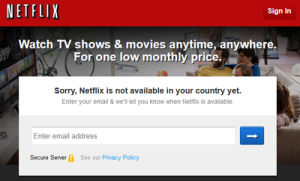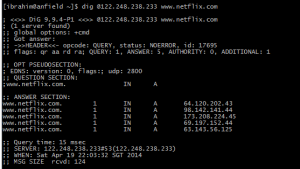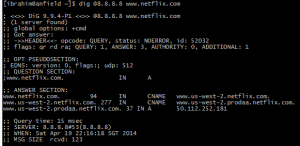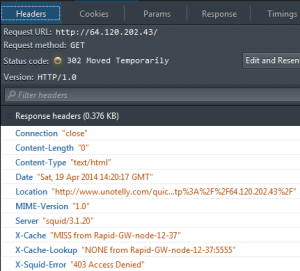I have been a cable TV subscriber for more than a decade and of late I have started looking around for a cheaper alternative. Netflix has been on my radar but it is still not officially available yet in my country of residence – Singapore.
One of my friends however has recently ditched the cable TV service and opted for Netflix. But wait a minute – Netflix is not available in Singapore, so how did he overcome that? His solution came in the form of a DNS service from UnoTelly called UnoDNS.
The contents on Netflix are geo-restricted, meaning that Netflix allows you to view their contents only if you are coming from the countries (currently the US, Canada, UK and a few others) that they serve. Netflix does not currently serve countries in Asia. Netflix detects your location based on the IP address that you use to access them and if you are coming from a location that is not served by them, you will get the error message as shown below.

The usual way to bypass restrictions imposed by sites such as Netflix is to subscribe to a VPN service. Once you are logged onto the VPN network, your computer will appear to be residing in that network. So if you have a VPN service provider that has servers in the US, your computer will appear to be in the US. And when you access Netflix from the VPN network, Netflix will no longer block your access.
So back to our original topic – how does UnoDNS work? Their solution does not use the VPN method but just require you to make changes to the DNS server entries on your router or internet-enabled device, such as your TV, computer or media player. I did a bit of research and below are my findings.
First, I signed up for a UnoTelly trial account and went through the normal account setup. I selected US as the country for Netflix and I got a list of their DNS servers to use from here.
I performed a DNS query on their DNS server in Singapore for www.netflix.com.

Then I performed the same DNS query on one of Google’s public DNS servers.

The results from UnoDNS and Google DNS servers were different. Next, I picked the first result from UnoDNS and tried to access Netflix from the IP address 64.120.202.43 on the browser directly. The HTTP request gave me a HTTP 302 redirect to a UnoTelly server.

So what UnoDNS does is this: Whenever you make a HTTP request to the main Netflix site, their DNS servers will redirect you to their own proxy servers instead. Their proxy servers will access the Netflix site on your behalf and Netflix will no longer block you from accessing their site as the requests are coming from the proxy servers and not from you.
Geo restrictions do not apply to the video contents on Netflix. So once you are logged on to Netflix and start streaming a video, it is no longer through the UnoTelly proxy servers but straight from Netflix to your device.

